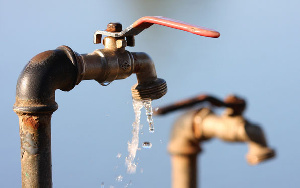The Bretton Woods Institution says with a modest reduction in poverty from 34 per cent to 28 per cent (2007-2012), more than 23 million people get drinking water from unimproved sources, and 41 million people use unimproved sanitation facilities.
Tanzania will need to invest more in WASH if it is to achieve the Sustainable Development Goals (SDGs), improve human development outcomes, and accelerate poverty reduction, according to a new WASH Poverty Diagnostic report published by the World Bank.
Titled ‘Reaching for the SDGs: The Untapped Potential of Tanzania’s Water Supply, Sanitation and Hygiene Sector,’ the report notes that SDG-6 challenges for countries to reach universal access to safely managed water and sanitation by 2030; while its six targets are inextricably linked with other targets, including ending extreme poverty, ending forms of malnutrition and reducing infant mortality.
Adequate WASH is a crucial component of basic human necessities that allows a person to thrive in life, according to World Bank Country Director for Tanzania, Malawi, Somalia and Burundi, Ms Bella Bird. “Outbreaks of cholera andother waterborne illnesses do not only overburden health systems and increase premature deaths; they do also leave a negative mark on the individual’s social mobility, health, quality of life, and their human capital. We are pleased to be a partner with the Government - our current and forthcoming water and sanitation programmes will help advance the WASH agenda,” she said.
The Tanzania WASH Poverty Diagnostic is part of a multi-partner Global WASH Poverty Diagnostic initiative being implemented in 18 countries across regions. Its objectives are to highlight the priority gaps in WASH access; identify those regions and population groups that are most deprived of higher-quality WASH services; demonstrate how investment in WASH can aid poverty reduction and human development strategies; and identify the major institutional constraints that hold back effective WASH service delivery.
The recommendations from the diagnostic for Tanzania include integrating the SDG framework into poverty-reduction strategies and water and sanitation programmatic approaches such as Water Sector Development Programme II and making further investment in rural water and sanitation and ‘celebrating maintenance’ to enhance sustainability in the future;
Others are addressing utility inefficiencies, the growth in dependence on informal private providers, the need for expanded regulation, formulating more coherent policy, more clearly define and assign responsibilities for sanitation, and identify sanitation champions.
The WB report also recommends adopting in urban areas citywide sanitation approaches that recognise that different solutions are suitable in different contexts, designing WASH interventions with a ‘nutrition-sensitive’ lens and seek to integrate WASH into multi-sectoral strategies addressing education, health and nutrition outcomes.
It also recommends facilitating efficient, transparent and predictable financial flows between water and sanitation services actors from donor, to government, to community to promote sustainable governance

